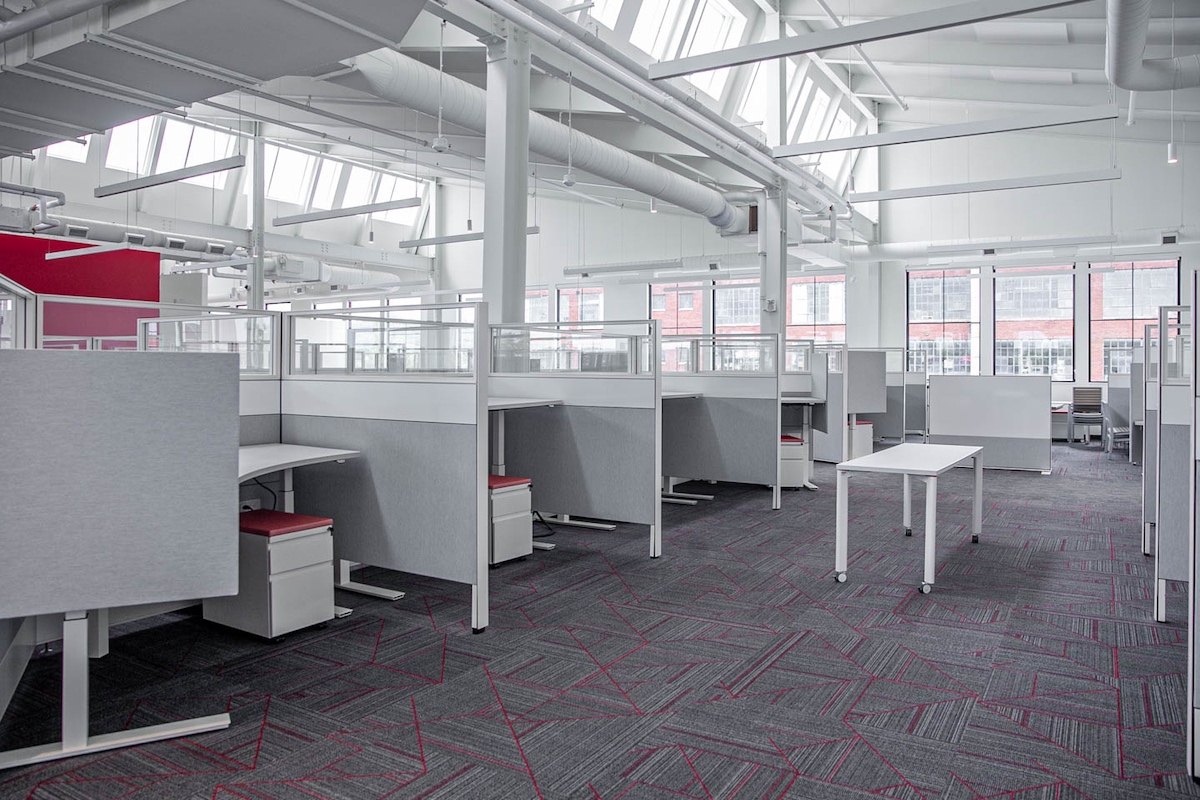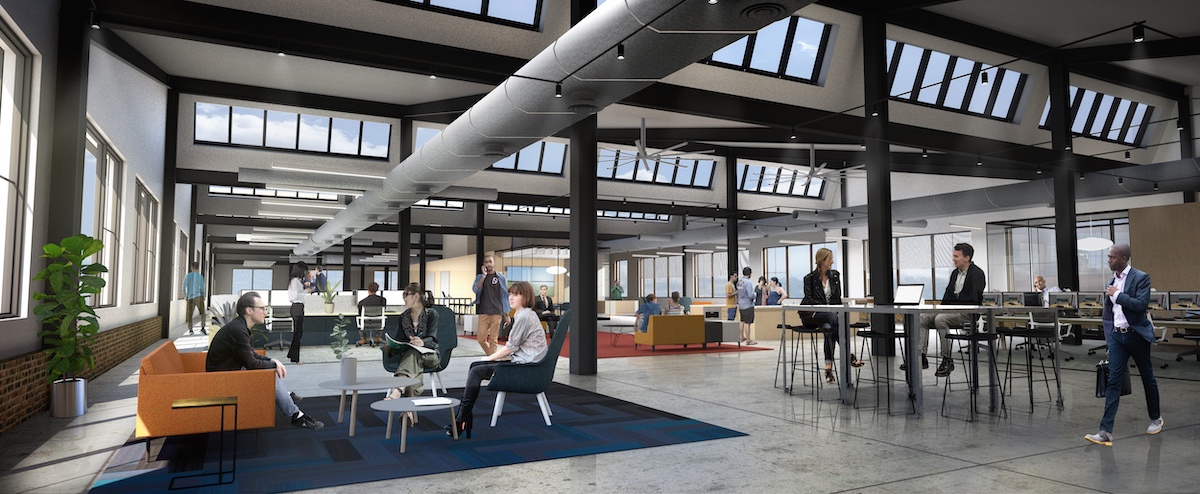As remote work persists, many companies are reconsidering their permanent offices altogether. But Pittsburgh developers are banking on a return to in-person operations.
A half-hour walk east of Pittsburgh’s tech hub in Bakery Square is a budding collection of office, innovation and community spaces. Rockwell Park — like the East Liberty business district that hosts companies like Google and design software firm Autodesk — is a collection of buildings constructed in the early 20th century. The North Point Breeze location once hosted industrial leaders like Rockwell International (cofounded by Pittsburgh engineering legend George Westinghouse), Mine Safety Appliances and Chromalox. Now, as the city prepares to move beyond that past into a tech-powered future, Rockwell Park promises another core to help speed that transition.
Across eight buildings and 24 acres, the new campus, which is represented by commercial real estate services company JLL, will bring 800,000 square feet in mixed-use space. That includes a variety of office options like tech flex, standard, loft and Class A for tenants, as well as urban retail space to bring non-corporate businesses to the area. Rockwell Park developers also plan to leverage existing attractions in the area, like the popular East End Food Co-op and a climbing wall, to build community among tenants through 50,000 square feet of outdoor plaza space.
Though much of Rockwell Park is still in development and will be opened through a multi-phase rollout over time, some offices are already open and functioning, including 53,000 square feet for anchor tenant 3M, which acquired the previously Squirrel Hill-based health tech startup M*Modal for $1 billion at the end of 2018. Housed in the top floors of the Edwin building, 3M’s new workspace features Class A amenities like conference spaces, smaller work rooms, lounge space and outdoor balconies.
“For 3M to show confidence in the location and M*Modal, to sign a lease for 53,000 square feet and move 250 people into our park, that’s just an incredible validation of the potential that we saw all along,” JLL Managing Partner Jason Stewart told Technical.ly.

Other tenants so far include education robotics company BirdBrain Technologies, wearable medical device firm Lifeware Labs and autonomous flight company Near Earth Autonomy.
Despite the new remote work setups many businesses have adopted over the past year and a half, Stewart isn’t surprised to see so much interest and commitment to having a physical space.
“Some people like to use the word tech, but I think the common denominator for so many of our technology companies is engineering,” he said. The “random interactions people have” that spark innovation can’t be fully replicated over video chat, he argued, adding that keeping operations fully remote is an even bigger challenge for product-focused companies like those in the robotics sector that require in-person building and tinkering.
Rockwell Park, like Hazelwood Green, is a significant and long-term investment in Pittsburgh as a growing center for the tech industry. While both projects had been in the works before the pandemic, the continued commitment to them from investors and tenants alike sheds light on what the city’s new economic frontier might look like. Each has a unique combination of traditional office, commercial, community and manufacturing spaces for companies to grow their operations and businesses alongside each other.
Local universities have also joined the list of tenants at each, with the Carnegie Mellon University School of Drama bringing an artistic community to Rockwell Park and a robotics one to Hazelwood Green, while the University of Pittsburgh has signed on for space at Rockwell.

The need for all of those resources is something Stewart sees as one of the foundations to Pittsburgh’s future.
“What we’re finding is that, while we do have great office space, we’ve also got a fair amount of space that you can build inside of — so robotics, life science, research, pharmaceutical — and we are seeing an interesting amount of demand for that type of space where people are actually prototyping, testing,” he said. Having a space that allows companies to be able to do that in tandem with other operations allowed by flexible workspaces is “something we’re seeing that is all part of Pittsburgh’s changing economy.”








